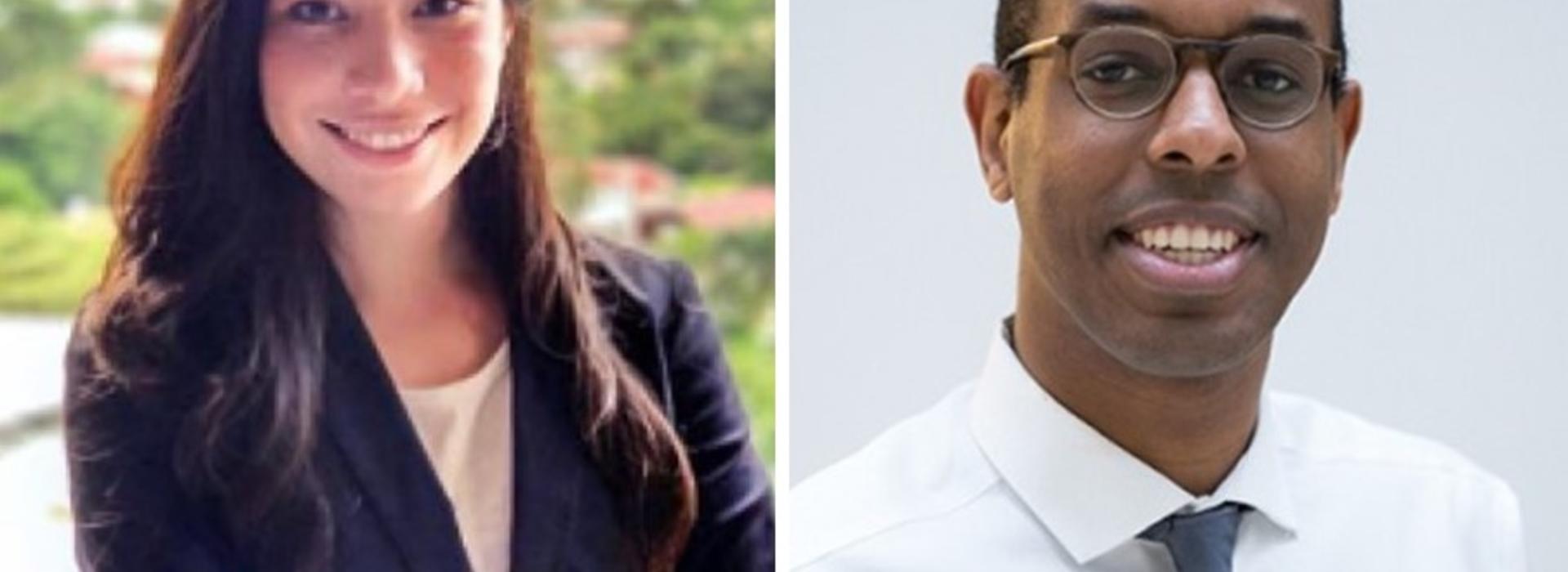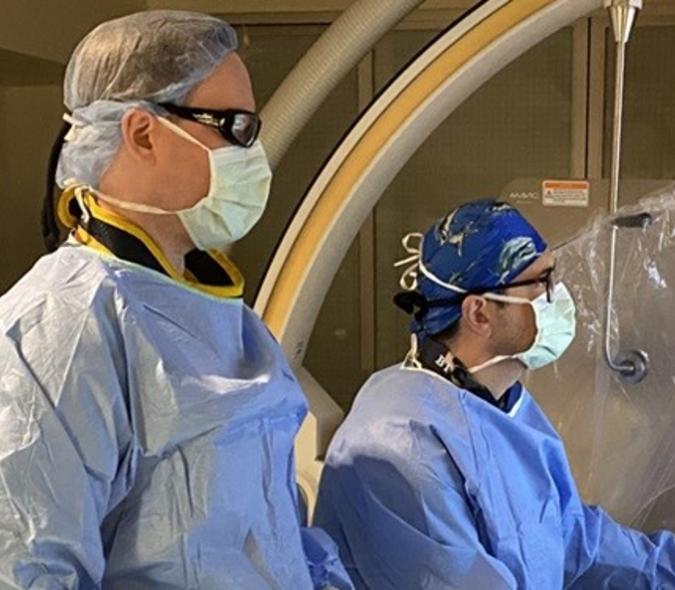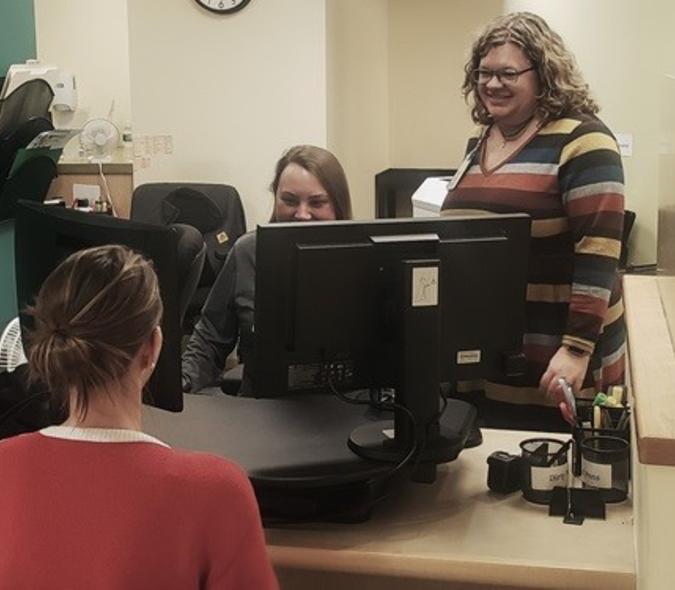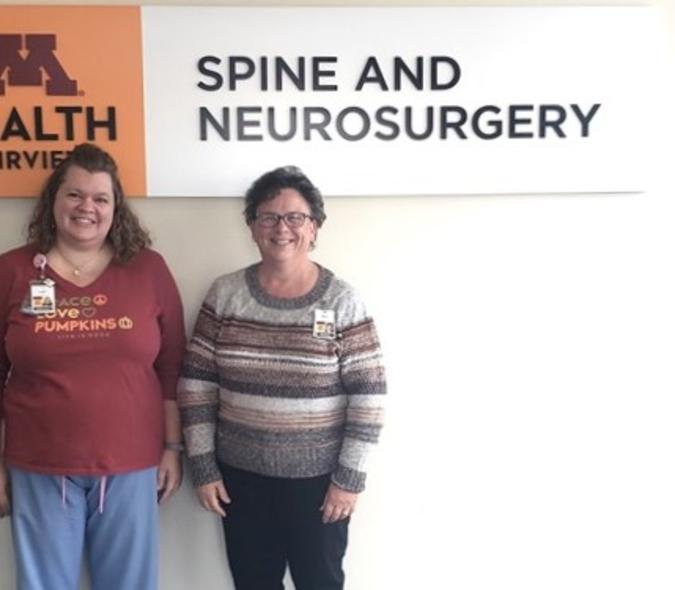
Department announces its 2020 resident class
On March 20, 2020, medical students from throughout the nation learned where they would go for their residency programs. This year’s Main Residency Match hit a unique milestone in National Residency Match Program history. According to its website, a “record-high 40,084 applicants submitted program choices for 37,256 positions, the most ever offered in the Match.”
The U’s Neurosurgery Residency Program was the beneficiary of the program and is excited to announce its two new “matches,” Isabela Peña Pino, MD; and Birra Taha, MD.
“We are all very happy that we were able to match well this year,” said Michael C. Park, Neurosurgery Residency Program Director. “We are fortunate to have the two new incoming interns and look forward to having them on the team.”
Isabela Peña Pino, MD
A native of Honduras, Peña Pino earned both her undergraduate (B.Med.Sci in basic sciences) and her MD from the Universidad de Ciencias Medicas Andrés Vesalio Guzmán (UCIMED) Escuela de Medicina, in San Jose.
She is a member of the Kaplan Honor Society and won Costa Rica’s Award for Highest National Score on the International Foundations of Medicine examination in 2018. Peña Pino graduated Summa Cum Laude in 2019 and won academic performance scholarships throughout her undergraduate and medical education.
A committed volunteer, Peña Pino was part of the Protected Area Volunteer Association in Guanacaste, Costa Rica. In addition to helping ensure sea turtle hatchlings’ safe arrival to the sea, the work involved protecting the turtles from poachers, collecting and maintaining data for research purposes, and planning awareness events.
Sub-internships completed
After arriving in the United States, Peña Pino completed several sub-internships performing services such as presenting patients during morning rounds, assisting during surgeries, seeing patient in clinic, attending conferences and covering overnight call at:
- Boston Children's Hospital, Boston, MA, mentored by Craig Lillehei, MD
- Massachusetts General Hospital, Boston, mentored by Jean-Valery Coumans, MD
- Hennepin Healthcare, Minneapolis, MN, mentored by Thomas Bergman, MD.
Research at the U
In addition to building her clinical skills, Peña Pino also performed research. Working with Theoden Nettoff, PhD, as a post-doctoral research associate, she spent a year helping with the University of Minnesota E-STAND trial (seeing if epidural spinal cord stimulation can restore volitional movement, autonomic stability, and sphincter control in chronic spinal cord injury). During that time, she worked with members of the Neurosurgery and Biomedical Engineering departments and was involved in clinical patient care, developing stimulation optimization models, and helping with papers destined for medical journals.
Peña Pino also assisted in the Translational Neuromodulation lab (for non-invasive neuromodulation and cortical and deep brain stimulation for cognitive function/addiction/pain), working with members of the Neurosurgery and Psychiatry departments and helping with protocol write-ups and publications.
Published author
Peña Pino has two peer-reviewed publications, presented a poster during the Institute for Engineering in Medicine’s Annual Conference held in Minneapolis, MN, and gave two oral presentations, one at Massachusetts General Hospital and the other in the U of M’s Department of Neurosurgery.
In her free time, Peña Pino enjoys being outdoors, hiking, practicing yoga, or reading a book. She is also a fan of independent films and looks for film festivals wherever she goes. She recently took up the harmonica and occasionally enjoys knitting and crocheting.
Birra Taha, MD
Most recently, Taha served as the Neurosurgery Department’s research coordinator, helping department researchers meet the requirements of the U’s Institutional Review Board, a critical step toward getting research projects off the ground.
While earning his MD from Weill Cornell Medicine, Taha completed a dedicated year of research under the combined supervision of the Departments of Neurosurgery and Physiology and Biophysics. As a result of this work, he completed the following projects:
- Explored and analyzed open repositories housing RNA-seq and microarray datasets to uncover new markers for Tumor-Associated Macrophages (TAMs). An article about the project is currently being prepared for submission
- Used single cell transcriptome profiling as well as DNA methylation sequencing in a mouse model for glioma with pre/post radiation treatment. Manuscript submitted and under review
- Developed a novel actuation mechanism to store and relay ventriculoperitoneal shunt function data. Presented as an oral presentation at the 2nd Annual CTSC Weill Cornell Hackathon and is in the process of submitting for a provisional patent
- Developed a voice-responsive laparoscopic training system to allow surgical trainees to train in realistic OR scenarios. This project resulted in a completed provisional patent submission.
Taha’s research funding while in medical school included:
- Rudin Foundation Fellow in Pediatric Neuro-oncology, 2017-2018
- New York Society for Vascular Surgery, Device Innovation Grant, 2016-2017
- Clinical & Translational Science Center (CTSC) Research Fellow, 2015.
3D-printed innovation
While participating in the Areas of Concentration Program at Weill Cornell, Taha worked with the Pediatric Surgery Department to develop a low-cost 3D-printable laparoscopic grasper that can be assembled from 3D-printed components. The Areas of Concentration Program provides dedicated time designed to enrich the medical school experience by requiring each student to select an Area of Concentration in which to obtain in-depth knowledge, skills and scholarly effort.
Taha also participated in a two-month-long bio-design seminar that exposed members of the Weill Cornell community to medical device design.
He earned his BS in theoretical mathematics from Ohio State University in Columbus, graduating Magna Cum Laud. While an undergraduate, Taha was a MERGE Engineering Scholar, a Nationwide Insurance Corporate Connections Scholar, and a Todd A. Bell Resource Center Scholar.
Active volunteer
Taha is a student member of the American Association of Neurological Surgeons and has volunteered with the following organizations:
- Machine Learning Interest Group
- Tech-in-Medicine
- Travelers Summer Research Fellowship
- Students for Equal Opportunity in Medicine.
He has published or submitted for publishing three journal articles and was first author on two. Taha has also shared his work during an oral and a poster presentation. He is multilingual and when he has some spare time, Taha enjoys soccer, pick-up basketball and cooking.
Both residents will join the department in early June 2020.
Welcome, Isabela and Birra!



